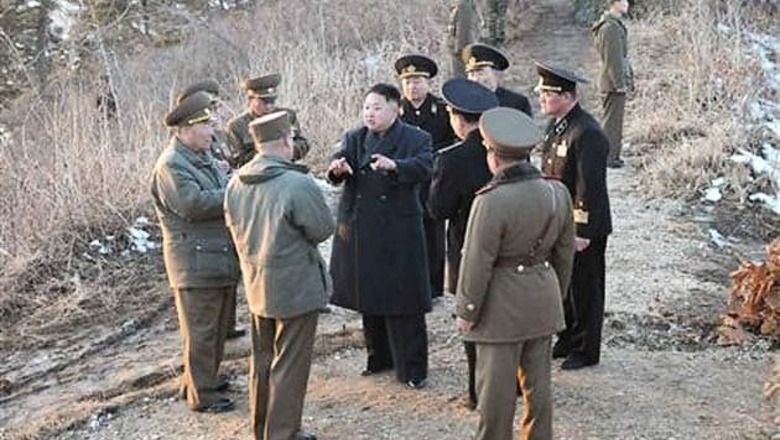
views
Seoul: North Korea may test a new missile to mark the birth anniversary celebrations of state founder Kim il Sung on Monday. The isolated and impoverished state celebrates the former leader's birth anniversary on Monday amidst growing tensions in the east, after weeks of war threats from Pyongyang. Speculation has mounted of an impending medium-range missile test launch in North Korea after reports in South Korea and the United States that as many as five medium-range missiles have been moved into position on the country's east coast.
North Korea has issued weeks of threats of an impending war following the imposition of UN sanctions in response to its third nuclear test in February.
US Secretary of State John Kerry on Sunday stressed the United States is willing to engage with North Korea as long as it takes steps to give up nuclear weapons. He also vowed Washington would protect its Asian allies against any provocative acts by the North, but said it wants a peaceful solution to rising tensions in the region. "We are prepared to reach out but we need (the) appropriate moment, appropriate circumstance," Kerry told a small group of reporters, adding that North Korea had to take steps toward giving up its nuclear programmes.
"They have to take some actions. Now how many and how much I want to have a discussion with folks back in Washington (about)... but they have to take action," he added.Kerry was in Japan for the final stop on an Asian tour aimed at solidifying support for curbing North Korea's nuclear programme, and reassuring U.S. allies. Kerry said the United States would "do what was necessary" to defend its allies Japan and South Korea, but added: "Our choice is to negotiate, our choice is to move to the table and find a way for the region to have peace."
Pyongyang, which was preparing to celebrate the birth date of state founder Kim Il-Sung on Monday, reiterated it had no intention of abandoning its atomic arms programmes. "We will expand in quantity our nuclear weapons capability, which is the treasure of a unified Korea ... that we would never barter at any price," Kim Young-nam, North Korea's titular head of state, told a gathering of officials and service personnel applauding Kim Il-Sung.
The KCNA news agency also rejected as a "cunning trick" South Korean President Park Geun-hye's suggestion last week of holding talks with the North. The South Korean capital, Seoul, displayed the calm it has shown throughout the crisis.
On Saturday, Kerry met leaders in China, the North's sole diplomatic and financial benefactor, and said China and the United States were committed to "the denuclearisation of the Korean peninsula in a peaceful manner". During his first stop in South Korea, where the United States has 28,000 troops stationed, Kerry said North Korea, furious at joint US-South Korean military drills, would be making a "huge mistake" if it were to launch a missile.
He also said China was in a position to influence the North's policy and had to put "some teeth" into efforts to persuade Pyongyang to alter its policies. Japan, separated from North Korea by less than 1,000 km (625 miles) of water and a frequent target of its anger, is well within range of North Korea's medium-range missiles.
Japanese news reports said Tokyo had sent Aegis-class destroyers capable of missile interception to the Sea of Japan. Patriot Advanced Capability-3 interceptor missiles have been deployed at key locations in the capital and surrounding areas. Kerry's agenda in Tokyo also included Japan's territorial disputes with China, and the future of US bases in Japan.
He repeated that while Washington took no position about the ultimate sovereignty of tiny isles in the East China Sea claimed by both China and Japan, the United States "opposed any unilateral action that would somehow change the status quo". A flare-up of the territorial row has raised fears of an unintended military incident near the islands, known as the Senkaku in Japan and the Diaoyu in China. The United States says the islets fall under a US-Japan security pact, but is keen to avoid a clash in the economically vital region.
(With Additional Information From Reuters)




















Comments
0 comment